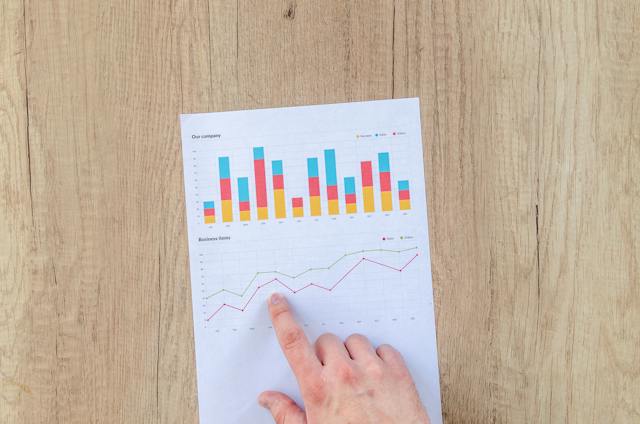The world of retail, especially in the grocery sector, is a delicate balance influenced by numerous factors. Kroger, a major player in the industry, recently posted fiscal second-quarter sales that fell short of expectations. While the company reaffirmed its full-year outlook, it anticipates that slowing inflation will lead to decreased revenue. In this article, we’ll explore how Kroger’s sales are being affected by slowing inflation and how changing economic conditions are influencing consumer behavior.
Kroger’s Sales Performance
Kroger, a prominent supermarket operator, recently reported its fiscal second-quarter sales and the results were not what Wall Street expected. Here’s how the grocer performed compared to analysts’ expectations:
Earnings per Share
Kroger reported adjusted earnings per share of 96 cents, surpassing the expected 91 cents.
Revenue
The company’s revenue came in at $33.85 billion, falling short of the anticipated $34.13 billion.
The quarter also saw Kroger post a net loss of $180 million, or 25 cents per share, a significant difference from the $731 million gain, or $1 per share, in the same period the previous year. This loss was attributed, in part, to the company’s settlement of claims related to the opioid crisis, which resulted in a $1.4 billion charge.
The Impact of Inflation on Retailers
Inflation has been a mixed bag for retailers. While it has contributed to higher overall sales due to increased prices on many items, it has also impacted the volume of merchandise sold. Shoppers are becoming more cautious about making discretionary purchases.
Kroger’s Unique Position
Kroger’s primary focus on everyday items like groceries has made the slowdown in discretionary merchandise less of a factor. However, it has created the risk that customers may turn to retailers known for lower food prices, such as Walmart, Aldi, or Dollar General.
A Broader Perspective
Other retailers, such as Target and Walmart, have experienced a similar trend. Shoppers are prioritizing essential purchases like food and household items while cutting back on discretionary spending.
Kroger’s Identical Sales
In the fiscal second quarter, Kroger’s identical sales without fuel saw a 1% increase, slightly lower than the expected 1.2% gain predicted by analysts. Identical sales exclude factors like store openings and closures.
Kroger’s Outlook and Inflation Trends
While Kroger has maintained its full-year guidance, Chief Financial Officer Gary Millerchip noted that the company expects identical sales to be at the lower end of its annual range, with a slight negative impact in the latter half of the year when excluding fuel.
Inflation Expectations
Millerchip also mentioned that Kroger expects inflation to “continue to decelerate” and anticipates a challenging environment for consumers in the months ahead.
Consumer Price Index (CPI) Data
While food prices at home have seen a 3.6% year-over-year increase in July, indicating a slowdown in the rate of price rises, they are still significantly higher compared to pre-pandemic levels, with a jump of 25% since January 2019.
Kroger’s Response to Changing Consumer Behavior
Kroger CEO Rodney McMullen highlighted the potential benefits of slowing inflation. As inflation moderates, Kroger is starting to witness improvements in volume. Additionally, consumer packaged goods companies are becoming more willing to collaborate with Kroger on pricing strategies to maintain their sales.
Catering to Budget-Minded Shoppers
Kroger has recognized that some shoppers are feeling the pinch of high inflation, reduced government benefits, and rising interest rates. To address this, the company is offering lower-priced items from its own brands, personalized discounts, fuel rewards, and weekly specials.
Adjusting Shopping Habits
In response to economic challenges, some customers are opting for smaller product sizes, choosing the most economical options, or reducing the contents of their shopping carts.
Kroger’s Online Growth
Kroger has seen notable growth in its online sales, with digital sales increasing by 12% year over year. The company has expanded its online presence to new markets, including Florida, through the establishment of large warehouses for fulfilling online orders.
Retail Crime Challenges
Kroger, like many other retailers, is facing organized retail crime as a significant challenge. The company reported an increase in shrink, which refers to losses due to theft and other factors, in the quarter. Kroger has escalated security measures and adopted new technologies to combat these issues, but it expects theft trends to remain a challenge for the remainder of the year.
Preparing for a Merger
Kroger is in the process of acquiring grocery rival Albertsons for $24.6 billion. To facilitate this merger, Kroger has reached an agreement to divest more than 400 stores and eight distribution centers to C&S Wholesale Grocers. This deal, valued at approximately $1.9 billion, aims to keep Kroger on track to complete the merger with Albertsons early next year. However, the grocery merger is also under scrutiny from antitrust officials in Washington, D.C.
In conclusion, Kroger’s recent sales performance provides valuable insights into the complex interplay between inflation trends, consumer behavior, and the retail industry. While the supermarket giant is navigating challenges posed by inflation moderation, changing shopping habits, and organized retail crime, it continues to adapt and innovate to meet the evolving needs of consumers in a dynamic economic environment.
FAQs:
Q1: Why did Kroger’s fiscal second-quarter sales miss expectations? Answer: Kroger’s second-quarter sales fell short of expectations due to the deceleration of inflation trends, impacting the supermarket operator’s revenue.
Q2: How has inflation affected Kroger’s sales and consumer behavior? Answer: Inflation has contributed to higher overall sales at Kroger, but it has also led consumers to prioritize essential purchases like groceries over discretionary spending.
Q3: What is Kroger doing to adapt to changing consumer behavior amid inflation concerns? Answer: Kroger is responding to consumers’ budget-conscious mindset by offering lower-priced items, personalized discounts, fuel rewards, and weekly specials.
Q4: How is Kroger dealing with organized retail crime challenges, and how has it impacted the company? Answer: Kroger is facing organized retail crime, which has led to increased shrinkage. The company has implemented security measures and new technologies to combat this issue.
Q5: What is the status of Kroger’s acquisition of Albertsons, and how is it affecting the company’s future plans? Answer: Kroger is in the process of acquiring Albertsons, and it has divested stores and distribution centers to C&S Wholesale Grocers to facilitate the merger. However, the merger is also under scrutiny by antitrust officials.
Tags:
- Kroger
- Inflation trends
- Consumer behavior
- Retail sales
- Organized retail crime
- Grocery industry
- Albertsons acquisition
- Budget-conscious shoppers
- Online sales growth
- Retail challenges














